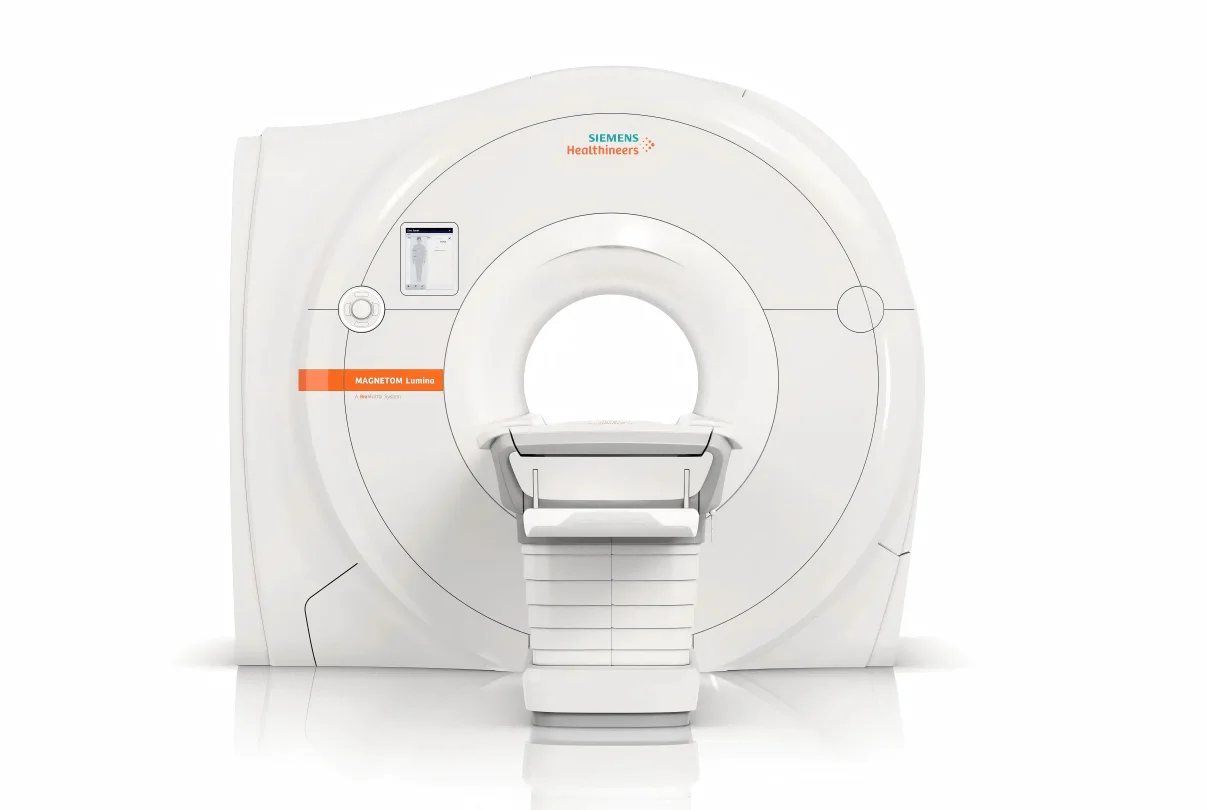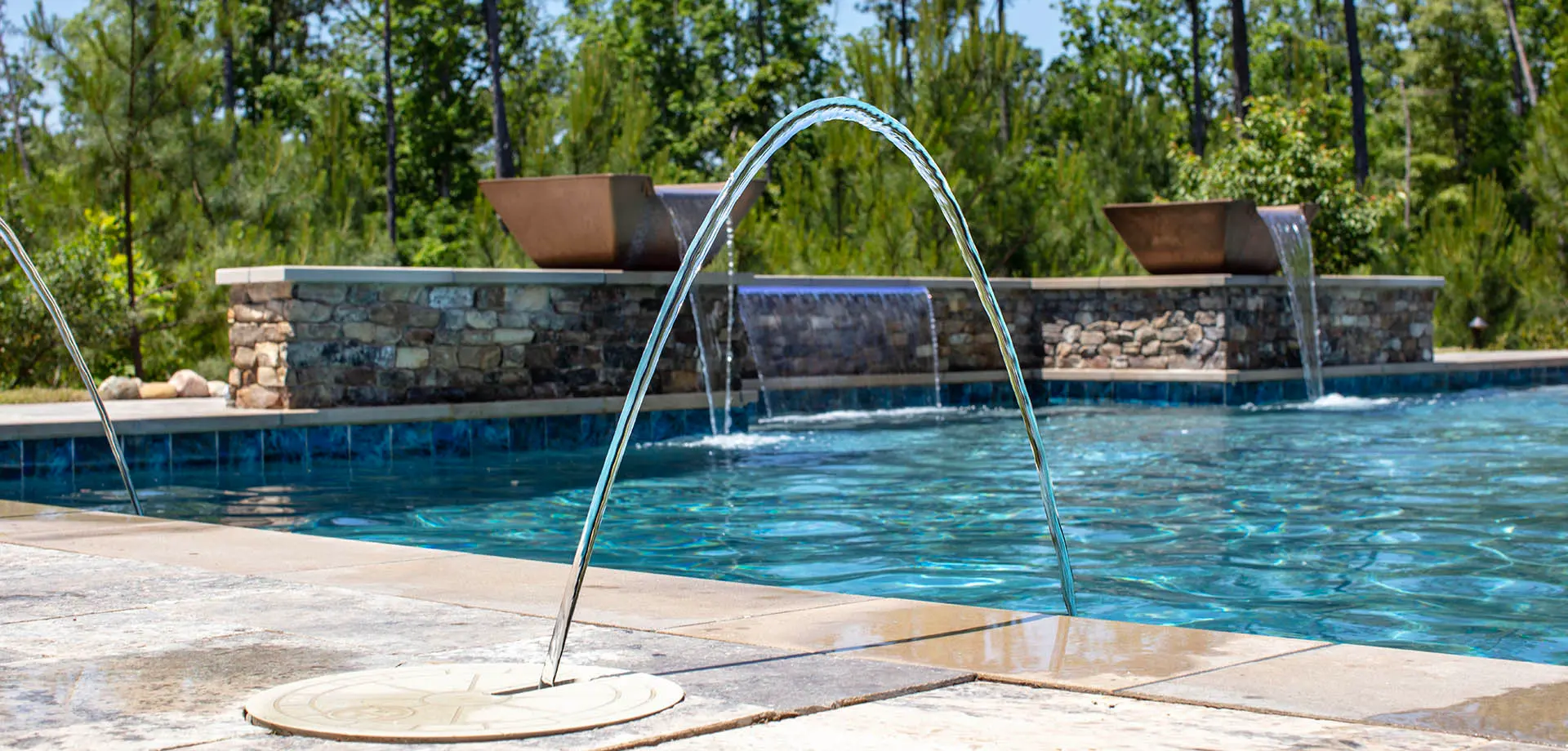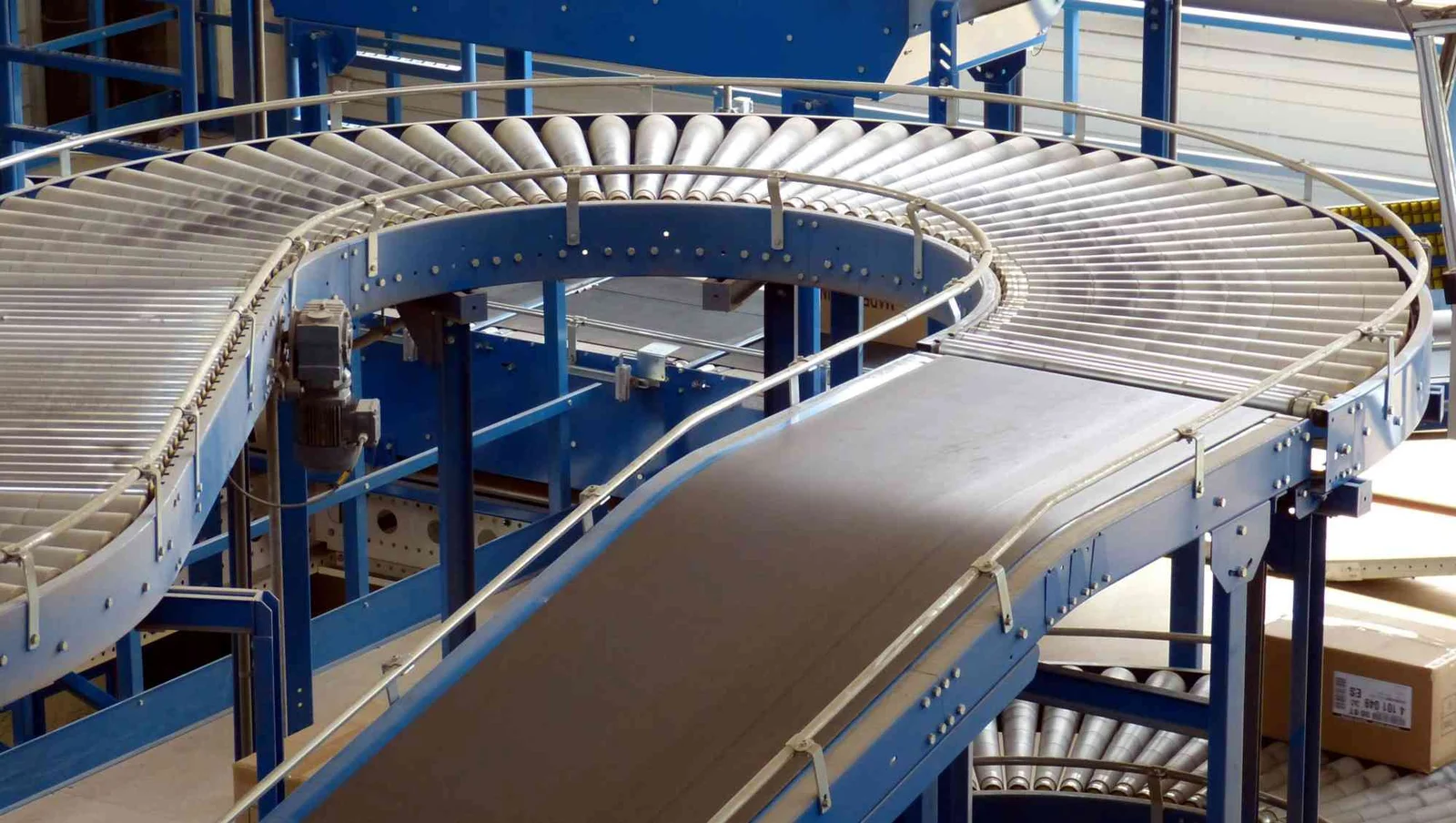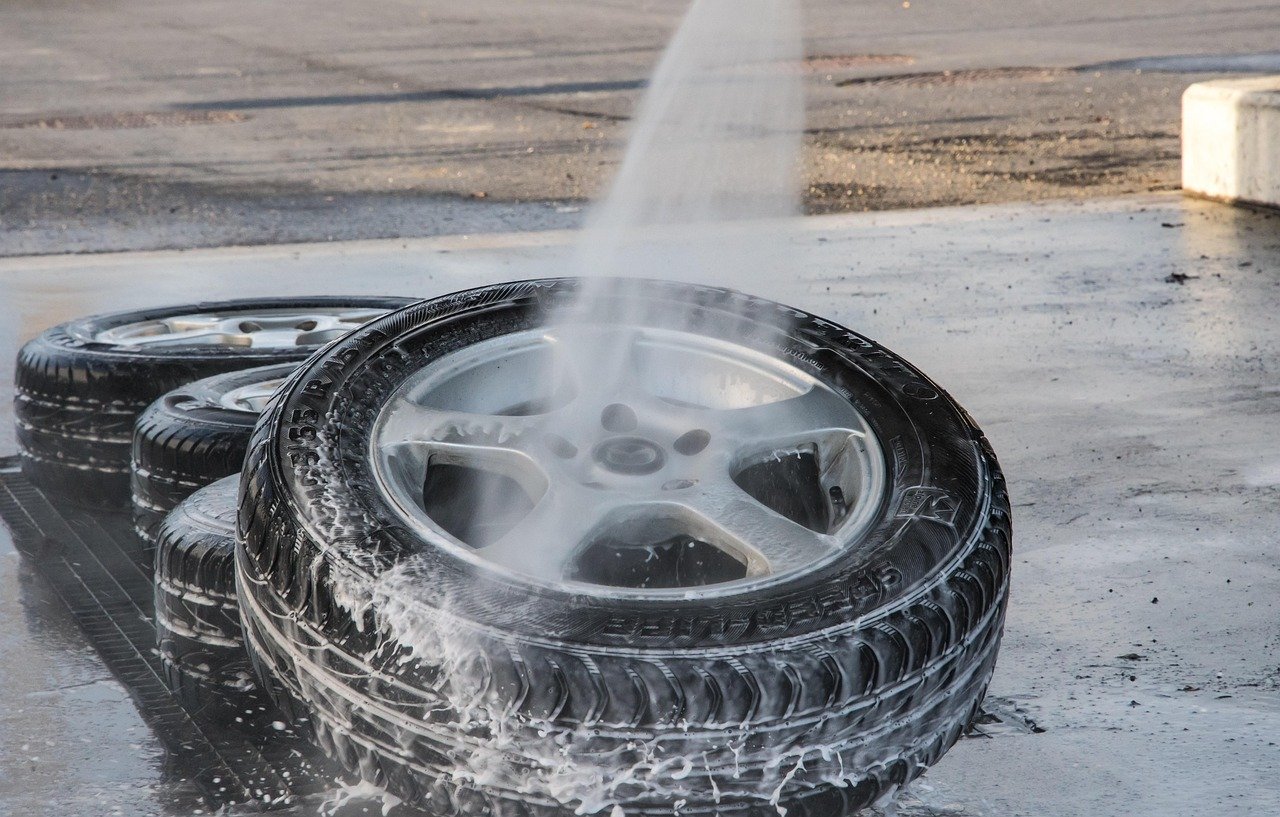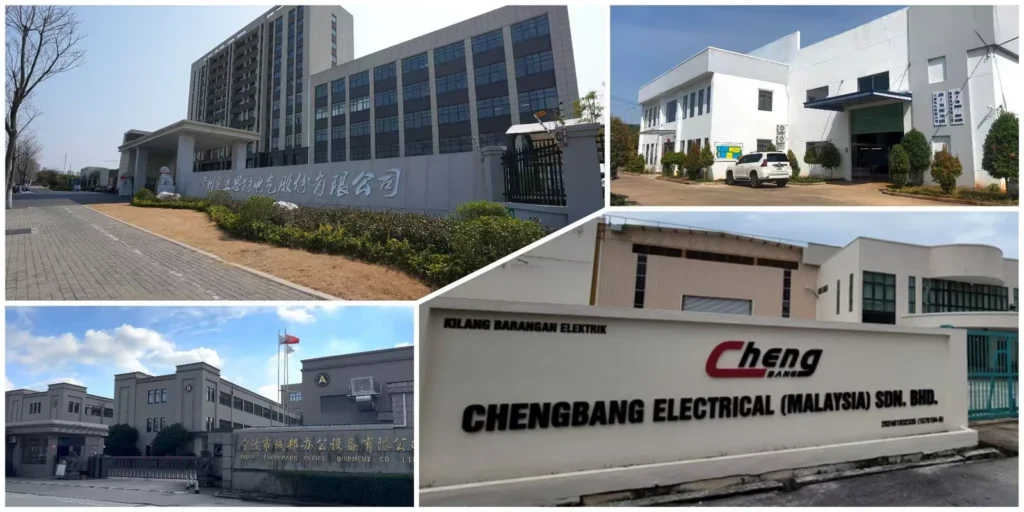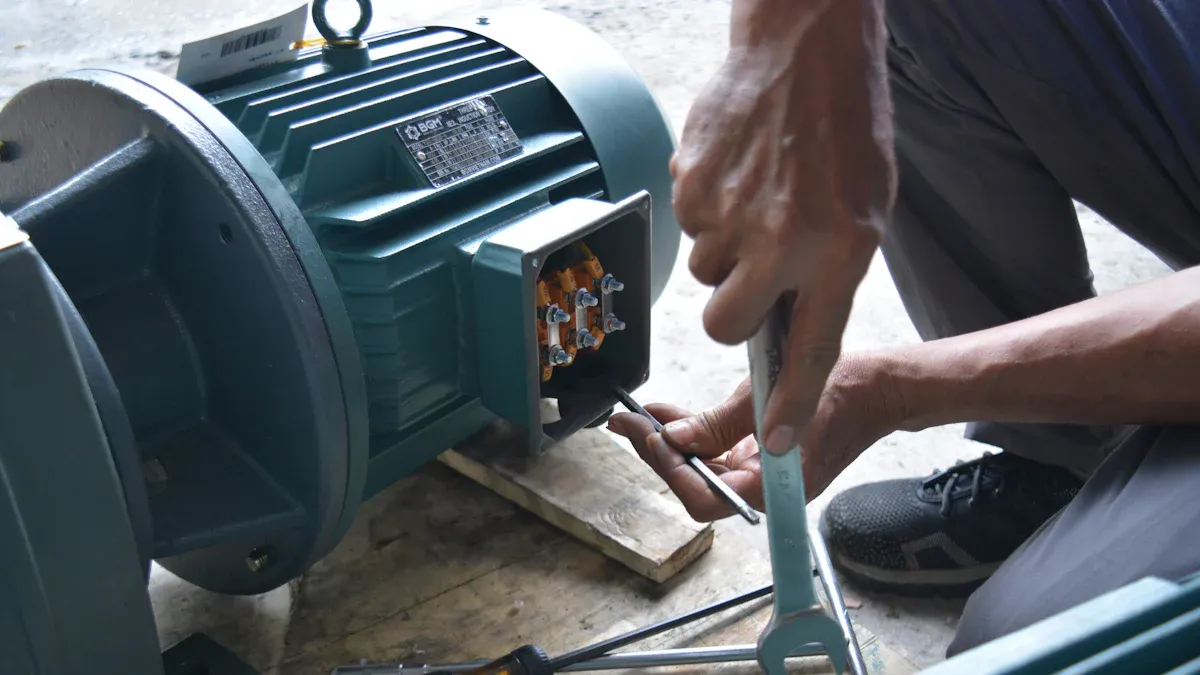
Energy-efficient synchronous motors from Honest enhance your pump systems by improving pump efficiency, helping you use less energy while extending equipment lifespan. These motors deliver tangible energy savings across various applications:
Application Area | Motor Type Replaced | Energy Savings Achieved |
|---|---|---|
Water pumping stations | Induction motors | |
Plastic extrusion company | Traditional motors | Up to 15% |
Replacement of DC motors | DC motors | 8-15% |
Pulp and paper industry | Traditional motors | More than 25% |
Beyond energy savings, new motor technologies offer additional benefits:
Variable Frequency Drives (VFDs) provide precise speed control, boosting pump efficiency and extending machine life.
Advanced materials increase motor durability and reduce maintenance needs.
Smart monitoring systems detect issues early, preventing unexpected downtime.
Noise reduction features create a safer, quieter work environment.
Digital tools enable proactive problem detection, ensuring smooth and environmentally friendly operations.
Key Takeaways
Energy-efficient synchronous motors save energy and reduce electricity costs.
They provide steady speed and better control, improving pump reliability.
Using variable speed drives matches pump speed to demand, avoiding wasted energy.
Regular maintenance and smart monitoring prevent breakdowns and keep pumps running efficiently.
Choosing certified motors from trusted suppliers ensures safety, quality, and easy system integration.
Pump Efficiency with Synchronous Motors

Energy Savings and Performance
You can make your pumps work better by using energy-efficient synchronous motors. These motors help you use less electricity. You get more work done for each unit of energy. If you replace old induction motors with new synchronous motors, your pumps run much better.
ABB’s IE5 Synchronous Reluctance Motors lose less energy than IE3 motors. You can save up to 40% energy. This helps you spend less money and makes your carbon footprint smaller.
Companies like Eisele and Netzsch-Feinmahltechnik switched to synchronous motors. They now get green rewards and earn their money back in less than a month.
Sawmills and wastewater plants saved lots of money over a few years after changing to these motors.
Synchronous motors use a simple design like induction motors. They also have high efficiency like permanent magnet motors. You get strong power, need less fixing, and have fewer problems.
Experts say you get the best pump efficiency when you improve the whole system. You should use high-efficiency motors, smart drives, and better parts. Sometimes, changing old gear reducers and induction motors to direct-drive synchronous motors saves over half the energy.
Reliability and Sustainability
You want your pumps to work well and last long. Synchronous motors help you do this. They keep the same speed all the time. This means your pumps work more accurately and steadily. Pumps work better and break down less.
Aspect | Synchronous Motors | Asynchronous Motors |
|---|---|---|
Keeps speed steady for accurate pump work | Speed goes down with heavy loads, less control | |
Starting Torque | Needs extra help to start | Starts easily with strong power |
Power Factor | Can be changed, makes system work better | Stays the same, needs extra equipment |
Efficiency | Works best at full power, helps pumps last longer | Good for many jobs, works with changing loads |
Maintenance | Needs special care often | Simple, needs less fixing |
Industrial Preference | Best for control and saving energy | Chosen for being reliable and cheap |
Permanent magnet synchronous motors with built-in controls are easy to install. You have fewer wiring problems. You spend less time fixing things and more time working. These motors let you use smart sensors to check for problems before they stop your pumps.
Synchronous motors help you reach your green goals. They can be up to 99% efficient. This means you use less energy and make less pollution. Even a small boost in efficiency can save lots of energy over 15 years. It can also lower CO₂ by hundreds of tons each year. These motors make less heat, so your equipment lasts longer and needs fewer repairs.
Synchronous motors are good for hard jobs like compressors and conveyor belts.
Their high efficiency and built-in power factor correction help you save energy and money.
You can connect them to smart systems for early problem checks. This keeps your pumps working and stops breakdowns.
Many countries now ask companies to use energy-saving motors to help the planet and support new technology.
International Standards and Regulations
You must follow world rules when you upgrade your pumps. These rules help you pick the right motors. They make sure your equipment is safe and works well.
Standard/Regulation | Region/Organization | Scope and Focus | Impact on High-Efficiency Synchronous Motors in Pump Systems |
|---|---|---|---|
NEMA Premium-Efficiency Motor Program | United States (DOE/NEMA) | Pushes for better motors to save energy and cut pollution | Helps people use high-efficiency motors like synchronous ones in pumps, saving lots of energy |
CENELEC EN50598 | Europe (CENELEC) | Checks drive systems and how well they work | Supports using efficient drive systems with synchronous motors, making pumps work better |
IEC 61800-9-2:2017 | International (IEC) | Uses EN50598 as a world rule, sets how efficient drives should be | Gives a world guide for using high-efficiency synchronous motors with drives in pumps |
European Commission Ecodesign Directive | Europe (EU) | Sets lowest efficiency levels for motors from 1-500 hp | Makes pump makers use high-efficiency synchronous motors to follow the law |
Variable Speed Drives (VSDs) and Service-Oriented Drives (SODs) | Global | Technology that saves energy by changing motor speed and checking how it works | Helps people use and improve high-efficiency synchronous motors in pumps |
You can trust that Honest’s synchronous motors meet these standards, giving you reliable, safe motors designed for long-term performance and future system compatibility.
Tip: If you pick synchronous motors that meet world rules, your pumps work better, you save energy, and you help the planet.
Understanding Synchronous and Asynchronous Motors
Key Differences and Impact on Pump Efficiency
You might ask how synchronous and asynchronous motors are different. This is important for your pumps. Synchronous motors from honest always run at the same speed as the power supply. This keeps your pump working at a steady speed. You get a steady flow and better control. Asynchronous motors, also called induction motors, run a little slower than the power supply. Their speed changes when the load changes. This can make your pump less efficient if the demand goes up or down.
Here is a table that shows the main differences:
Feature | Synchronous Motor | Asynchronous Motor (Induction Motor) |
|---|---|---|
Speed | Constant, no slip | Varies with load, slip present |
Power Factor | Can be leading or lagging | Always lagging |
Efficiency | High (90-95%) | Lower (85-92%) |
Starting Current | Needs special starter | High inrush current |
Control | Precise speed and torque | Less precise, slower response |
Heat Generation | Less heat, longer life | More heat, more wear |
Synchronous motors help pumps work more efficiently because they do not waste energy from slip. They keep your system steady, and you don’t need extra equipment to correct power factor. Honest’s permanent magnet synchronous motors can use significantly less energy than induction motors in typical pump applications. You move more water for each unit of power, and the motor lasts longer because it stays cooler.
Note: Synchronous motors let you control speed exactly. Your pumps give the right flow every time. This helps you save energy and money.
Application in Industrial Pumps
You can use both types of motors in pumps. The motor you pick changes how your pump works. Synchronous motors are best when you need steady flow and high efficiency. They are great for water treatment, oil and gas, mining, and pulp and paper. In water plants and HVAC systems, these motors keep the flow steady and save energy. They also help in pool pumps, where new rules want better efficiency.
Honest has many motors for pumps. These include permanent magnet synchronous motors and three-phase asynchronous motors. If you want exact control and lower energy bills, pick a synchronous motor. If you want a simple and tough motor for easy jobs, an asynchronous motor may be better.
Synchronous motors are best for:
Pumps that need high torque at low or medium speeds
Jobs that need variable speed drives
Systems where saving energy and being reliable are most important
You get better pump efficiency, less downtime, and lower costs when you choose the right motor for your pump system.
Honest Pump Motor Solutions
Customization and Integration
You can make your pump system work better with Honest’s motors. Honest offers customized motors to match your size, power, and feature requirements. If your project requires a motor for special fluids or high pressure, Honest can provide a tailored solution. Their team helps you choose the best motor type, such as explosion-proof or submersible models.
Honest motors fit into your current systems easily. They use smart controls that connect to your system’s control unit. You can change speed and flow as you need. This gives you steady flow and pressure, which improves Pump Efficiency. The motors are made with strong materials and special coatings. They last longer, even in tough places. You also get safety features like protection from overheating and too much pressure.
Here are some ways Honest’s motors help in real jobs:
In water treatment, they keep pumps working well and save energy.
In factories, they run robots and conveyor belts at steady speeds.
In filtration, they help keep water clean and follow safety rules.
Tip: Custom motors from honest can help you save energy and make your equipment last longer.
Certifications and Global Standards
You want motors that follow world rules. Honest’s pump motors have top certifications. These include IE4 and IE5 for saving energy, CE for Europe, UL for North America, and CCC for China. They also meet ISO9001 for quality and RoHS for being safe for the environment.
Certification/Standard | What It Means for You |
|---|---|
IE3, IE4, IE5 | Saves energy and lowers costs |
CE | Safe and legal in Europe |
UL | Trusted safety in the US and Canada |
CCC | Approved for use in China |
ISO9001 | Good quality every time |
RoHS | Good for the environment |
You can use Honest’s motors in many places around the world. These certifications show the motors are safe, reliable, and ready for global use.
Optimizing Pump Systems

Variable Speed Drives and Energy Efficiency
You can make your pump system smarter with variable speed drives. VSDs work with synchronous motors. VSDs let you change the pump speed to fit your needs. Your pump does not have to run at full power all the time. This helps you save energy and money. Using VSDs with synchronous motors saves 20% to 40% energy. Old ways like valves or dampers waste more energy. Synchronous motors keep working well even when the speed changes. You also get soft starting. This means your equipment has less stress and needs fewer repairs.
Tip: VSDs help your pump work only as hard as needed. This keeps your system smooth and saves electricity costs.
Advanced controls make your pump system even better. You can use field-oriented control and maximum torque per ampere. These methods help your synchronous motor work its best. Your pump reacts fast and uses energy wisely. Honest supports these controls. You get top performance and Pump Efficiency for your system.
Maintenance and Reliability
You need to care for your pump system to keep it working well. Regular maintenance is important. Clean filters often. Check bearings and fix shaft alignment. This stops problems before they start. Smart sensors help you watch for trouble. They show high temperature or vibration. You can fix things before they break.
A good maintenance plan keeps your pump system efficient. Buying motors and parts from a single supplier makes repairs easier and ensures everything works together. With regular maintenance, your pump uses less energy and lasts longer.
Maintenance Task | Why It Matters | How Often |
|---|---|---|
Clean filters | Stops clogs, keeps flow strong | Monthly |
Check bearings | Prevents wear and overheating | Every 3 months |
Align shafts | Reduces vibration and damage | Twice a year |
Monitor sensors | Finds problems early | Always |
Note: Taking care of your pump system gives you better reliability, lower costs, and higher Pump Efficiency.
Overcoming Implementation Challenges
Cost and ROI in Industrial Systems
If you want to upgrade to synchronous motors, you will see a higher starting cost. Permanent magnet synchronous motors need special materials like copper and rare earth magnets. These materials make the motors cost more at first. Making a motor just for your pump system can also raise the price. You may pay extra for better control systems and steady power. The cost of copper and magnets can change in different countries. This can change how much you spend.
Some things that make the first cost go up are:
Using pricey materials like copper and Neodymium magnets
Custom designs made for your pump system
Even though you pay more at the start, you save money later. Most companies get their money back in three to five years. For example, one big factory switched to synchronous motors. They saved over 20% on energy bills and got their money back in three years. Over time, you pay less for fixing and keeping up the motors. This helps you save even more.
Tip: Think about the total cost for the motor’s whole life, not just the first price. Saving energy and fixing less can make the cost worth it.
Compatibility and Support
It can be hard to add new synchronous motors to your old pump system. You need to match voltage, current, and power ratings. If these do not match, your system may not work right or could break. You also need to check if your control system can talk to the new motor. Sometimes, high-frequency drives can cause electromagnetic interference. This can bother other equipment nearby. Fast motors can make unwanted currents in metal parts. This may waste power.
Some common problems with compatibility are:
Power rating and capacity are different
Frequency needs to match for the motor to work
Control system needs to talk and give feedback
You can fix these problems by working with a trusted company like Honest. Honest gives you product design, 3D modeling, and fast prototyping. This helps your motor fit your system. Their team helps with electromagnetic simulation and thermal checks. You get order tracking and help with shipping worldwide. After you install the motor, Honest gives remote help, performance checks, and advice for maintenance. You can also change motor settings for speed, torque, and control.
Note: Honest’s expert help and flexible building make it easier to solve technical problems. This makes your upgrade easy and successful.
By choosing energy-efficient synchronous motors, you can improve your industrial pump system’s performance, reduce energy costs, and lower carbon emissions. Regular maintenance keeps your equipment reliable and long-lasting. Honest can provide expert guidance and support, ensuring your motors are well-matched to your system and helping you complete upgrades smoothly, making your equipment more efficient and hassle-free.
FAQ
What is a synchronous motor, and why should you use it for pumps?
A synchronous motor runs at a constant speed. You should use it for pumps because it saves energy, gives steady flow, and lasts longer. You get better control and lower electricity bills.
How do you know if a synchronous motor fits your pump system?
Check your pump’s power, voltage, and speed needs. Honest’s team can help you match the right motor. You can also ask for a custom design if your system has special requirements.
What maintenance does a synchronous motor need?
You should check bearings, clean filters, and watch for unusual noise or heat. Honest recommends using smart sensors for early warnings. Regular care keeps your motor running smoothly and helps it last longer.
Can you use variable speed drives with synchronous motors?
Yes, you can. Variable speed drives let you change the pump speed to match your needs. This saves energy and reduces wear. You get more control and better efficiency.
